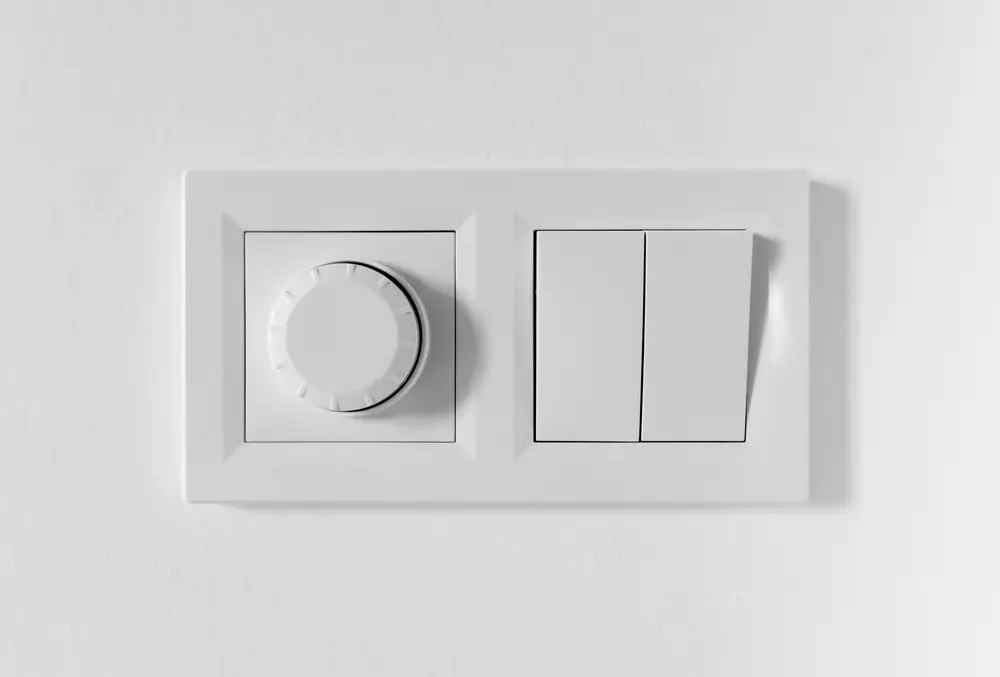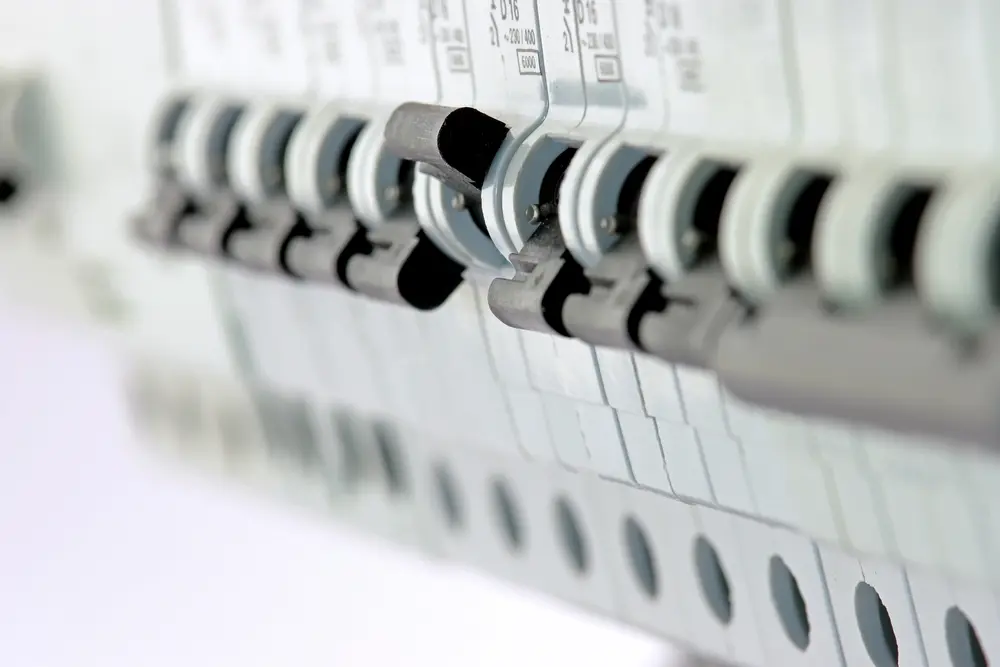If your lights start to flicker, it may simply seem like a common, irritating household problem. But when the flickering keeps occurring, it could be a sign of something more serious.
Do your lights start flickering or dimming when turning on your appliances? If the answer is yes, there may be a major problem with your electrical system. Below is a guide by the electricians at Charles Stone to better understand why your lights are flickering and what this means for your system.
How to Identify the Severity of Flickering Lights in Your House
Take constant flickering as a sign of an electrical problem. It could mean something as small as a faulty wire or something more severe. Before you start panicking over a potential repair bill, there is a silver lining.
Sometimes lights will flicker if you’re using several appliances at the same time. This can be common, especially when some of those appliances require high voltage like washers or dryers. In these circumstances, flickering lights are not a sign of something serious.
However, there may be a serious problem if your lights continuously flicker by themselves. In this case, call a certified electrician from Charles Stone. Our experts provide thorough inspections for your electrical systems, finding the source of your flickering issues.
What Causes Lights to Flicker? 10 Common Causes
The source behind your flickering lights can have a wide variety of causes. Some causes are easy fixes—others? Not so much. Below are the common causes that can lead to that annoying flicker.
-
Loose Light Bulb
A simple problem that occurs when the connection between your light bulb and socket is not secure. Without proper connection and contact, the light will flicker. To fix it, turn off your light and tighten the bulb into the socket.

-
Type of Bulb & Power Fluctuations
Different types of bulbs can flicker for a variety of reasons. Certain bulbs like LEDs, will be more sensitive to power fluctuations. This in turn will cause the bulb to flicker.
Other types like fluorescent bulbs flicker as they power on or as they age. A great fix for flickering is simply switching over to a more modern bulb.
-
Dimmer Switch Issues
If your light fixture is connected to a dimmer switch, you may experience flickering. A dimmer switch is not compatible with every kind of light bulb.
For example, LED bulbs need a specific type of dimmer to work. Check to make sure your dimmer is compatible with your current bulbs.
-
Loose Electrical Connection
A more serious issue is loose connections which lead to potential electrical shocks or fire risks. A way to check this is by observing the flickering pattern. One or several flickering lights can indicate whether the issue is isolated or not.
Being a more serious cause, you want to have an emergency electrician to come work on your system. They have the expertise and tools to safely investigate your system and perform needed repairs.

-
Overloaded Circuit
This typically happens when you have too many fixtures and appliances on the same circuit, running at the same time. With the continual usage of electricity, this can lead to sudden dips in the power, causing your lights to flicker.
If your home is older, your electrical system may be too outdated to handle the electrical demand.
-
Utility Equipment or Service Issues
These issues can be anything from malfunctioning equipment to having constant grid fluctuations. There is not much a homeowner can do regarding this so it is better to have your utility provider investigate the problems.
-
Fluctuating Voltage
Typically, homes will have a circuit that is 120 volts, which means your electrical usage should be between 115 to 125 volts. If you are curious about your voltage, use a voltmeter to check. If your readings come back with more than 125 volts, then your system is experiencing a severe issue.
This not only leads to bulbs flickering and dying faster, but it can also lead to more hazardous risks. Before it gets to that point, have a certified electrician inspect and resolve your voltage issues.

-
Old or Loose Wiring
When electrical wiring is worn down or loose, it poses a danger to you. Wiring issues are hazardous and can cause electrical fires if not dealt with.
Have your electrical wiring checked and replaced by an electrician if you believe it is not cutting it anymore.
-
Arcing
This situation arises when there is a loose connection in your electrical system. The gap in the connection allows electricity to jump across, creating a brief flash of light.
This flickering can lead to unstable lighting and poses a risk of electrical fires.
-
Main Connection Issues
Issues with your main system connection can include your main service cable or meter box. These problems directly affect items like your light fixtures and appliances.
When it comes to your electrical system, solving the issue demands the expertise of a certified electrician. An expert from Charles Stone is happy to assist with your main connection issues.
When to Call an Electrician for Flickering Lights
Flickering lights can be caused due to multiple sources. When it comes to small problems like a single bulb flickering, therein lies a simple fix like reconnecting the bulb or replacing it entirely. When the flickering extends to more lights, it alerts you to a much bigger problem occurring within your electrical system.
This is when you call on the expertise of an electrician. Your electrical system can be a complex and hazardous puzzle to try to solve. However, a professional electrician can safely inspect for issues causing your flickering lights and provide prompt repairs.
Resolve Flickering Lights & Protect Your Electrical System with Charles Stone
While it may be easy to ignore flickering lights, they could be a telltale sign of a bigger electrical issue. When the flickering won’t stop, call the experts at Charles Stone.
Our team of trained electricians helps identify the cause of your flickering and provides prompt repairs for your system. We get your electrical problems solved so you can enjoy your electricity with peace of mind. Say goodbye to the flickering with one call to (931) 342-1149 or schedule online.
We are proud to serve the Nashville community. Our electrical services also extend to areas including:
- Cookeville
- Murfreesboro
- Forrest Hills
- Hermitage
- Old Hickory
- And more!
Frequently Asked Questions:
Are flickering lights dangerous?
It depends. If the issue is consistent, it should alert you that you have a bigger problem happening with your electrical system. No matter the scope of the issue, it is always smart to have an electrician investigate the problem fully and perform repairs if needed.
Can flickering lights cause a fire?
Yes, they can cause a fire. If your lights flicker throughout your home without the involvement of high-voltage appliances, there may be a problem with your wiring. Problematic wiring is a fire risk.
Can a bad breaker cause lights to flicker?
Yes, bad breakers can cause your lights to flicker. When you turn on a high-voltage appliance, like your AC, it takes a big electrical current load to start it. If it’s too much to handle, your circuit breaker will overload and cause your lights to flicker. This can be a sign of a larger issue.

